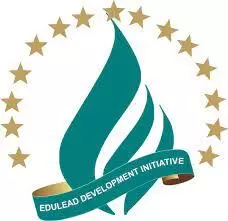
The Executive Director, EDULEAD Development Initiative, Mr Chinedu Okpara, said he was moved to tears when he visited a school with 1,000 students having only two toilets. Opara made this known in an interview in Abuja.
He noted that his team, in collaboration with UN Educational Scientific and Cultural Organisation (UNESCO), paid the school a visit as part of a project called Dream Gap Initiative.
Dream Gap Initiative is a project being carried out by EDULEAD, in collaboration with UNESCO, to assess education in Nigeria following COVID-19 pandemic and how girls in particular were coping.
The project was launched in March 2021 to conduct school assessment and the first phase of the project is being carried out in six pilot states, Imo, Kogi, Gombe, Yobe, Nasarawa, Taraba and the Federal Capital Territory (FCT).
Opara disclosed that the project was an effort to partner state governments, international organisations and other critical stakeholders to reposition education in the country.
He said the affected school, located in one of the local government areas of Imo, was an indication of the deplorable state of the country's education system.
He stressed that one other school, which the team visited had no toilet, while a particular school had only one teacher to about 700 school children.
"One of the schools we visited had a population of about 1,000 students with only two toilets. One toilet for the boys and one for girls.
"Other schools we visited had no toilet at all.
"For instance, John F Kennedy Secondary School in Owerri North has no toilet at all.
"So, the students have to go into the bush to be able to ease themselves and these things have a way of exposing the children to molestation and a whole lot of issues associated with such exposures," he said.
Opara said, "We also noticed shortages of teachers.
"A particular public school we visited in Ahiazu Mbaisie has just one English language teacher for a population of more than 700 students.
"This particular teacher we discovered is being owed for more than a year.
"Almost all the schools we visited had similar problems."
Opara said besides non-availability of toilets, there were other challenges faced by teachers and students of the schools.
He pointed out that some of the challenges ranged from leaking roof, broken down chairs and tables to non- availability of laboratories and libraries.
"The issue of infrastructure decay in our schools is very alarming and we cannot say people should go back to school when they do not have an enabling environment to learn.
"We saw that a lot of schools have dilapidated buildings with rain dripping from the roof which were already falling off.
"Most of the schools had no laboratories or libraries and all of these things have impact on the quality education that we are seeking.
We also noticed that the number of classrooms were not sufficient for the population of students.
"We discovered that a lot of children turn out for school but the classes are not enough to accommodate them.
"For instance, we discovered about 100 students in a class that is meant to take about 50 students, which is overpopulation and we all know the implication."
Opara also said the team discovered lack of community ownership of school infrastructure, leading to vandalism of school doors, chairs, cables and other valuable items.
The executive director also raised concern about the porousness of all the schools, adding that none of them had perimeter fence, thereby exposing teachers and students to security risks.
He, however, expressed optimism that with the needed attention education, particularly in public schools, would be improved upon.
Opara commended efforts by the President Muhammadu Buhari-led administration to reform education, particularly recent programmes aimed at supporting teachers.
Supreme reports that EDULEAD Development initiative is a non- governmental organisation that promotes quality education, sustainable agriculture, good governance and a healthy environment.



